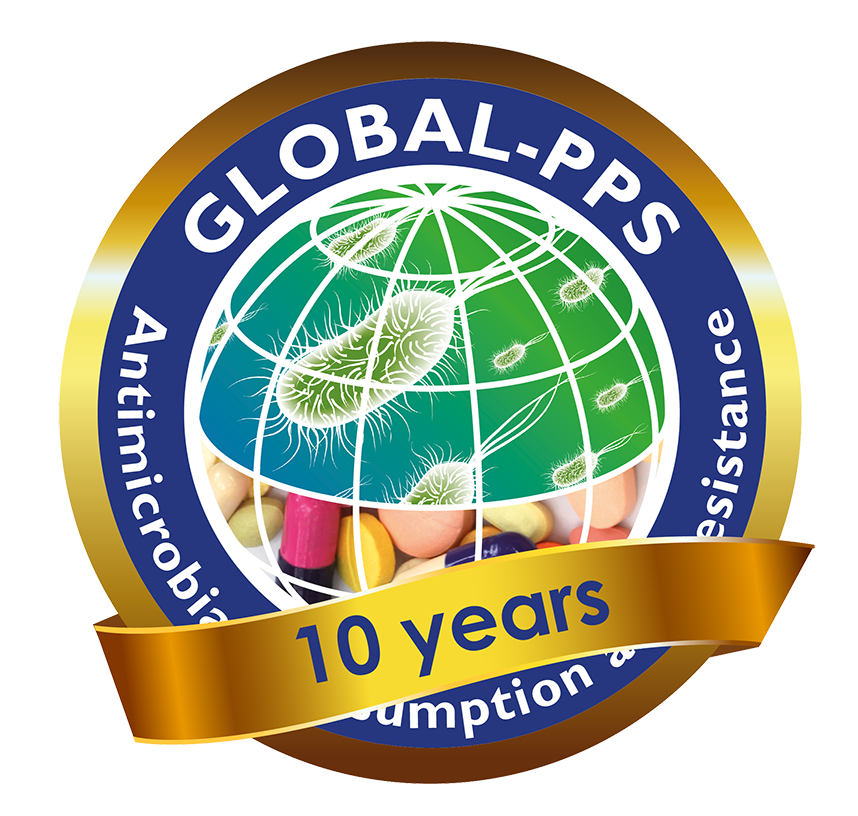Shaping Africa's fight against antimicrobial resistance: insights from Prof. Shaheen Mehtar
Meet Shaheen Mehtar, professor of Infection Prevention and Control in South Africa. As a founding member of the Infection Control Africa Network, she has played a pivotal role in shaping infection control practices across the continent. In this interview, Prof. Mehtar discusses her work with the Global Point Prevalence Survey, the successes and challenges of implementing antimicrobial stewardship programs, and her hopes for improving IPC efforts in both hospital and outpatient settings.
 Can you introduce yourself and elaborate on your work?
Can you introduce yourself and elaborate on your work?
Shaheen Mehtar: I am Shaheen Mehtar, a retired professor of Infection Prevention and Control (IPC) at Tygerberg Hospital and Stellenbosch University in Cape Town, South Africa. I’m also a founding member and the past chair the Infection Control Africa Network (ICAN), which is the largest infection control organization in Africa. In South Africa, I chaired the IPC Technical Working Group of the Ministerial Advisory Committee on Antimicrobial Resistance (AMR).
Can you comment on the current AMR situation in South Africa?
Shaheen Mehtar: There has been a lot of progress in tackling AMR in South Africa. Recently, a surveillance report covering AMR from 2018 to 2022[1] was published by the Ministerial Advisory Committee, and another edition is due soon. In terms of resistance, South Africa’s situation is very similar to that of European countries. We participate in global initiatives such as the Global Antimicrobial Resistance and Use Surveillance System (GLASS) by the WHO, and our levels of resistance are comparable to those of other BRICS countries, for both gram-positive and gram-negative bacteria. Overall, we’re managing the situation fairly well.
How did your collaboration with GPPS begin and what are its key advantages for South Africa?
Shaheen Mehtar: I’ve been familiar with GPPS for a very long time, but it was a challenge to get the survey going in Africa. In 2018, during the ICAN conference in Cape Town, we held a workshop to introduce GPPS to the African region, and several countries, including Nigeria, got on board. But South Africa didn’t join initially. In 2022, we conducted a pilot study through the IPC Technical Working Group, covering eight hospitals. In 2023, we expanded the GPPS to 82 hospitals across all nine provinces. This helped people see the value of surveillance. The GPPS provided South Africa with its first-ever national survey on antimicrobial use, which allowed us to compare hospitals for the first time. We now have the ability to assess data at the hospital, regional, provincial, and national levels, and compare it to global benchmarks. This data is crucial for understanding where we stand and making informed decisions.
What were the most important areas for improvement identified from the GPPS results?
Shaheen Mehtar: Several areas stood out. Our overall healthcare-associated infection rate of 7.5% is comparable to Europe, which is positive. However, we found that the duration of surgical site prophylaxis needed significant improvement. Antimicrobial use in high-care areas like intensive care units (ICU) and neonatal units was generally acceptable but had room for improvement. Encouragingly, there was good compliance with the WHO’s AWARE antimicrobial usage guidelines.
Did you implement any antimicrobial stewardship (AMS) activities based on the findings?
Shaheen Mehtar: Certainly. We already had a Ministerial Advisory Committee that had been in action for at least four or five years. And there were AMS committees set up at healthcare facility level, but many of them were inactive due to a lack of data. With GPPS, they received their own data, which allowed them to identify their shortcomings, challenges and successes and to address specific issues. Surgical prophylaxis was a significant problem, and we worked with surgeons to tackle this. Another key issue was the use of restricted antibiotics in ICUs. Additionally, we discovered that, in some hospitals, 80% of antibiotics were being used for healthcare-associated infections (HAIs). So a lot of money is being spent on HAIs, even though its rate is only 7.5% across the country. This is a strong motivation to improve infection control.
What challenges did you face when implementing AMS activities?
Shaheen Mehtar: There were many challenges. Hospitals were unsure about the purpose of collecting data—whether it was research, surveillance, or something else. Additionally, there was confusion about who should own the data—whether it was the responsibility of infectious diseases, public health, or IPC teams. Convincing hospitals that the data was anonymous and that they could use it to improve their practices took time. It was also challenging to get buy-in from the government, but we’ve made progress. Only one province will participate this year, but I sincerely hope that we can do the survey next year and every other year to gather longitudinal data, identify trends, and make necessary improvements. More education and workshops might help hospitals better understand and embrace the process.
What do you hope to achieve in the coming years?
Shaheen Mehtar: I’d like to see more hospitals in South Africa, particularly those in rural areas, participate in GPPS. The use of data to improve IPC is crucial. I also hope we can establish a costing system to show the financial impact of antimicrobial use and HAIs. This could help convince healthcare managers of the importance of AMS and IPC. Since GPPS is free and provides valuable surveillance data, I’d like to see it fully integrated into our health systems to support patient safety and quality assurance.
Is there data on antimicrobial use for outpatients in South Africa, particularly with the new outpatient module added to GPPS?
Shaheen Mehtar: I’m not sure at the moment. However, I’m very interested in expanding into the outpatient setting because general practitioners’ prescribing behaviors are a major challenge. There’s little oversight on how antibiotics are prescribed for outpatient conditions, and addressing this could have a significant impact. I’ve seen how effective this approach was in the UK, and I hope we can achieve similar results here. That said, I’ll need to talk to the GPPS team at the University of Antwerp again soon, because I want to organize a workshop on GPPS during a conference next year to get more African countries on board. We need to get things moving here!
[1] The report “Surveillance for Antimicrobial Resistance and Consumption of Antibiotics in South Africa 2018-2022” can be downloaded from this link (pdf).
About Shaheen
Prof Shaheen Mehtar (retired) consults at the Unit for Infection Prevention and Control (UIPC) at Tygerberg Academic Hospital and Faculty of Health Sciences, Stellenbosch University. She trained in the United Kingdom in Medical Microbiology, Infectious Disease and Community Health. Following a post as deputy director public Health in the South Cape Karoo region, she moved to Tygerberg Hospital and Stellenbosch Uni where she established the Unit of Infection Prevention and Control in 2004- it has a wide reputation across Africa and has trained more than 2500 student annually ranging from a 5 day basic course to a Masters in IPC.
She is an internationally recognised expert in IPC and has been involved in setting up IPC programmes in the UK, Europe, Far East, India, Asia and Latin America. Shaheen serves on several WHO committees including those for Ebola response, COVID 19 guidelines, ventilation and many others. Shaheen is a founder member, and immediate Past Chair of the Infection Control Africa Network (ICAN). Through ICAN, Shaheen is extensively involved in establishing and promoting IPC training programmes and structures across Africa.
